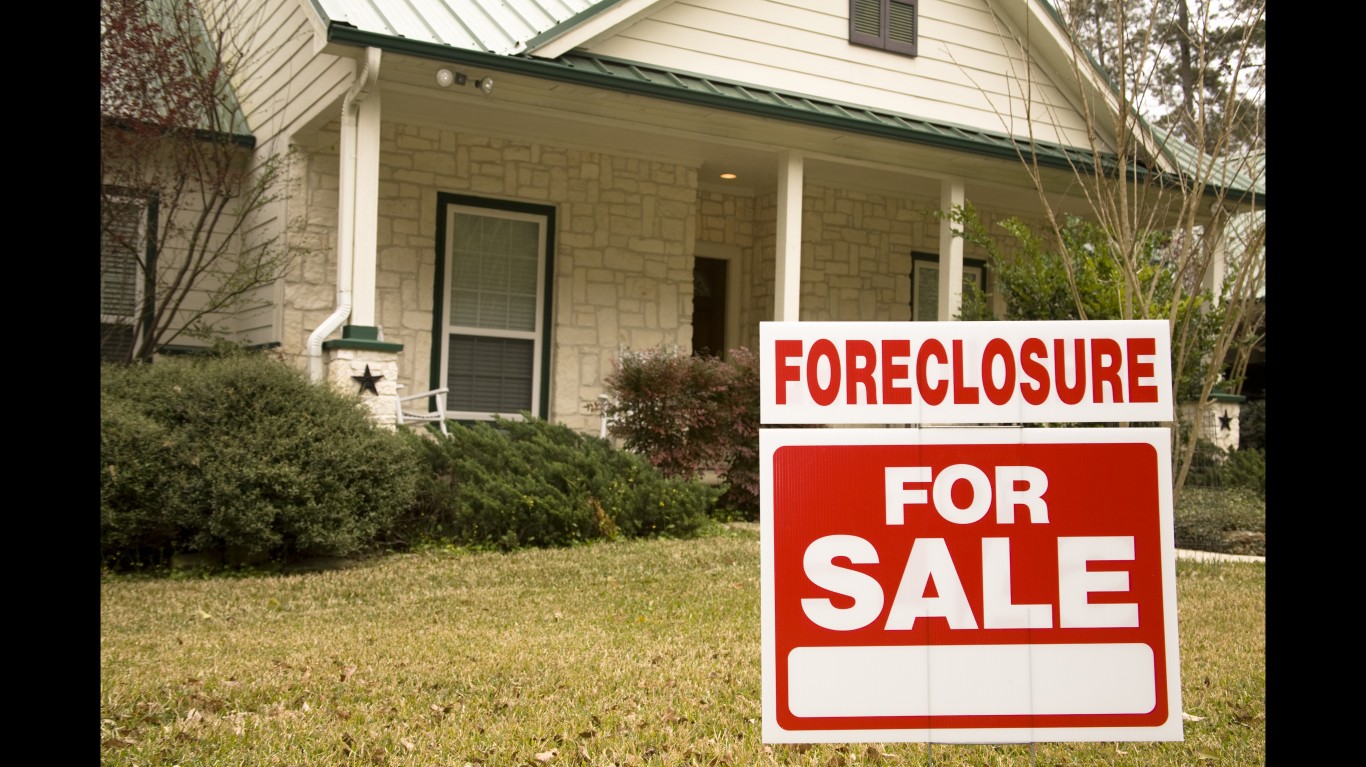
Mortgage delinquencies surged by 1.6 million in April, the largest single-month jump in history, according to Black Knight, which tracks the industry. The national delinquency rate jumped from 3.06% in March to 6.45% in April.
As the pandemic lockdown began, many mortgage holders were suddenly laid off, with no indication if or when their jobs might be restored. Conserving cash, many stopped paying some of their bills.
Nevada was hit the hardest, with delinquencies increasing by 5.2% for the month. New Jersey (5.1% increase) and New York (4.9%) were close behind. Nationwide, analysts expect more delinquencies when May’s numbers come out.
Like many sectors of the economy, the mortgage market will need government support for some time, experts say. The crisis directly impacts Fannie Mae (FNMA) and Freddie Mac (FMCC), and could delay the Trump administration’s plans to fully privatize the two companies.
As the overall market responded to the surprisingly good unemployment news, Fannie stock was up about 4% in Friday morning trading. The U.S. gained 2.5 million jobs in May. More people working presumably means more people making mortgage and rent payments.
Coronavirus Impact
As unemployment began to shoot up in March, it became clear that many Americans would need help paying their bills, including mortgages and rent. Enter Fannie and Freddie.
Under U.S. government control since the housing crisis of 2008, the two companies buy and guarantee home loans, which are packaged and sold as bonds. About half of the home loans in the U.S. are backed by Fannie, Freddie or the Federal Housing Administration. Policymakers quickly offered relief to anyone with a Fannie- or Freddie-backed loan.
For homeowners who’ve gotten sick, lost their jobs or seen reduced income due to COVID-19, Fannie Mae offers a reduction or suspension of mortgage payments for up to one year. Mortgage holders are required to contact their lender to request help.
For tenants in rental properties financed by Fannie, there’s an eviction moratorium. The company is also offering access to housing counselors who can help renters understand their options.
Fannie, Freddie and the Department of Housing and Urban Development also suspended foreclosures on single-family mortgages through at least June 30. Some analysts expect an extension on that.
“During this national health emergency, no one should be forced from their home,” Federal Housing Finance Agency (FHFA) Director Mark Calabria said last month. “Extending the foreclosure and eviction moratoriums protects homeowners and renters.”
Calabria also recently proposed a new rule that would require Fannie and Freddie to hold more capital, which would likely lead to higher fees and interest rates. Moody’s Analytics chief economist Mark Zandi said the proposal would disproportionately impact borrowers with low credit scores.
“I’m not really sure who benefits from this,” Zandi told Bloomberg. “I’m not even sure it helps their goal of privatizing.”
Privatization Plans Delayed?
The last financial crisis was all about real estate. In September 2008, Washington bailed out Fannie Mae and Freddie Mac, which were on the verge of collapse. About $5 trillion in loans was in danger of default.
Fannie and Freddie were put into conservatorship, and were obligated to pay part of any future profits back to the U.S. Treasury. This was never intended to be a permanent scenario. As the housing market recovered, some pushed for the government to get out of the mortgage business.
That’s exactly what the Trump administration wants to do. Last month, Fannie said it will begin a bidding process to hire a financial advisor to help it exit conservatorship. The move boosted Fannie stock.
According to the Fannie Mae announcement, the selected financial advisor will work closely with the agency and the FHFA “to consider business and capital structures, market impacts and timing, and available capital raising alternatives, among other items.”
Earlier this year, the administration had hoped to get an initial public offering (IPO) launched by early 2021. It could be the largest IPO ever and regulators say Fannie and Freddie would hold $240 billion in capital after they go private.
But the COVID-19 financial crisis has likely delayed this. When the pandemic started, banks stopped offering home loans and the market for privately backed mortgage bonds dried up. This left government-backed mortgages as the only game in town. Some analysts say it’s unlikely Washington would risk adding any uncertainty to the real estate market right now.
“The fact that 70% of the market is federally backed has made this experience far less gruesome than it could have been,” Julia Gordon, president of the National Community Stabilization Trust, told Bloomberg. “As imperfect as it is, we’re still in a better place than we were in 2007.”
Even critics of taxpayer involvement in the mortgage business would likely agree that the current system is working. Mortgage rates remain low, thanks in part to the conservatorship, experts say.
As Bloomberg explained: “The government’s ability to shoulder mortgage risk keeps housing open to more buyers, especially after a crisis when lenders run away from risk.” And with the entire financial system recovering from COVID-19, does Washington really want to risk adding another element of uncertainty right now by taking Fannie private? Besides, aren’t there bigger fish to fry?
Thank you for reading! Have some feedback for us?
Contact the 24/7 Wall St. editorial team.
 24/7 Wall St.
24/7 Wall St.